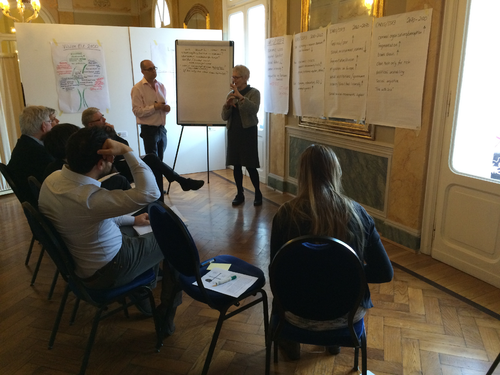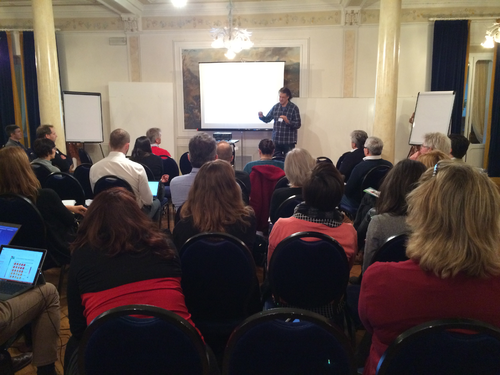Trends in current greenhouse gas emissions suggest that meeting the COP21 Paris Agreement to hold increases in the global average temperature to well below 2°C and to pursue efforts to limit the temperature increase to 1.5°C above pre-industrial levels will be extremely difficult. Furthermore, the societal implications of the mitigation effort required to achieve 1.5oC will be large, potentially leading to massive high-end socio-economic change which could outweigh many effects of climate change. The IMPRESSIONS project is advancing understanding of the implications of different combinations of high-end climate and socio-economic change. Recently, stakeholders from across Europe met to discuss strategies for adaptation and mitigation under uncertain high-end futures.


Discussions during the European Case Study; Credit: S. Haenen
Experts from across policy and practise were brought together with the IMPRESSIONS scientists to discuss (i) the types of changes in social and economic conditions we may face in Europe, in combination with climate changes, in the future; (ii) how such changes may affect Europe in a multitude of aspects including agriculture, forestry, biodiversity, tourism, health, water supply and more; and (iii) how current policies might perform under such conditions.
These discussions triggered the identification of possible responses to avoid the risks posed by, and to take advantage of the opportunities arising from, these different climate and socio-economic futures. The responses were grouped into similar types of actions and developed into strategies for adapting to the projected changes.
A very wide variety of different responses and strategies were generated by the stakeholders within the workshop. These will be further analysed by the project team to create adaptation and mitigation pathways. Synergies between the different strategies will be identified and elements of the pathways will be modelled to assess their ability to move society towards a more desirable future. These results will be presented to the stakeholders at a third workshop in February 2017 to further refine policy and practice recommendations for dealing with high-end climate and socio-economic change.